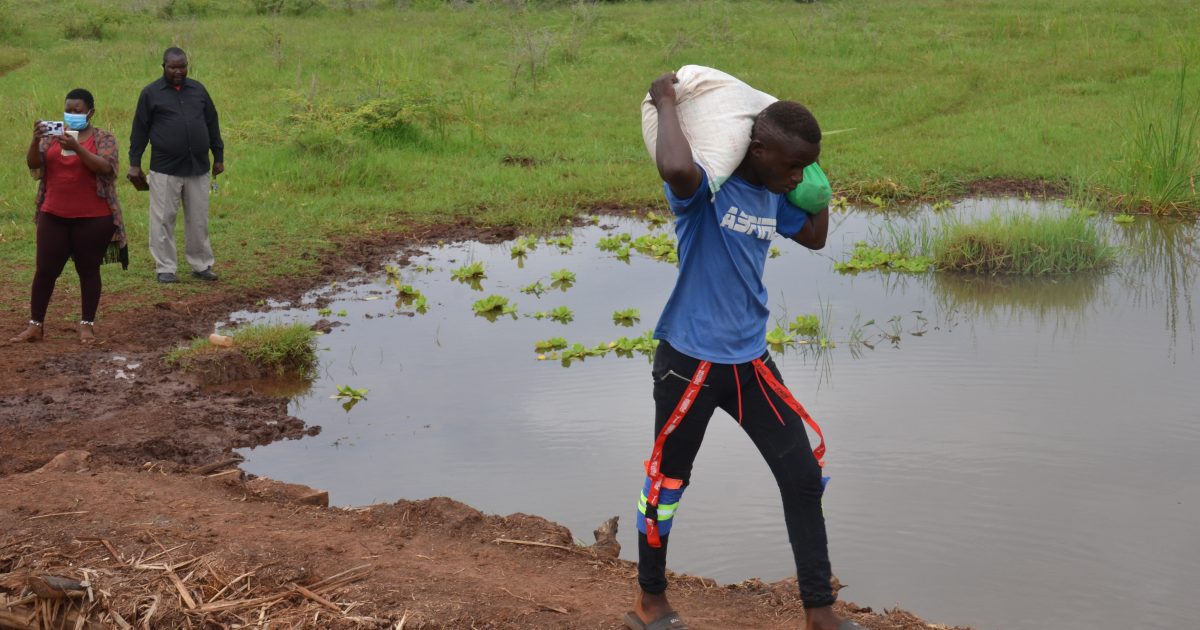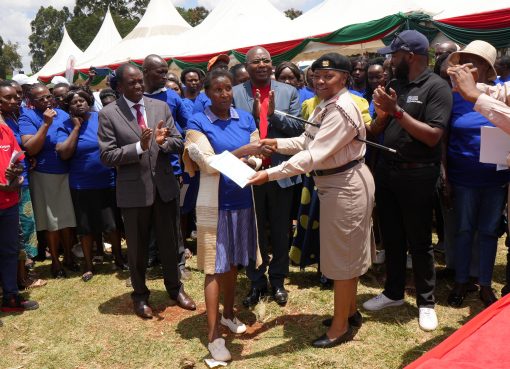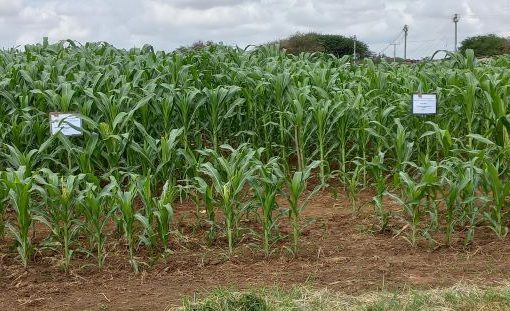The government has reported a breakthrough in arbitrating over the protracted Lake Jipe’s water dispute pitting fishermen and farmers in Taveta sub-county against a private investor who had blocked several ancient streams and canals that drain floodwaters into the border lake.
The move by the Ministry of Water through Water Resource Authority (WRA) has been described as a long-overdue effort towards restoration of a critically endangered cross-border marine resource to its former glory and protecting it from looming extinction due to destructive human activities.
Lake Jipe is a 49-km2 fresh-water body that is shared by Kenya and Tanzania. In Kenyan side, one part of the lake falls in Tsavo West National Park under Kenya Wildlife Service while the other part falls under community-owned area.
Since 2019, tension has been simmering after farmers and fishermen in Mata ward accused Kisima Farm of blocking several artificial streams that collect water from the natural springs to feed Lake Jipe. Kisima Farm is a 1,000-acre state-of-the-art farm situated in Mata Ward near Lake Jipe. The farm is associated with a top government official.
The streams blocked are Moguru, Sombasomba, Sembike, Letisia and Maloja. Historically, these streams were dredged in 1947 by Lord Grogan, the original owner of the land where Kisima Farm currently sits, to mitigate against flooding in the region.
The farmers accuse the farm’s manager, Aries Dempers, of brusquely rejecting any request to access the farm to desilt the blocked canals that have been causing excessive flooding in villages in the upper zones while creating severe water shortages in villages in lower zones around Lake Jipe.
Mata Ward Member of County Assembly (MCA) Khamadi Chanzu said the lake has been a source of livelihood for thousands in the region. The lake is also classified as a biodiversity hotspot with rare endemic fish and birds’ species. Already, water lilies and pygmy geese that are endemic to the lake have disappeared.
Mr. Chanzu said the blockage of the canals led to a drastic drop in the water levels of the lake. This has also caused flooding havoc in dozens farms in upper zones.“The people have severally pleaded with the manager to be allowed to unblock the canal because this lake cannot be allowed to die. This water body is the sole source of sustenance for farmers and fishermen in this region,” he said.
As water levels at Lake Jipe decline, fish production has dwindled alarmingly putting hundreds of fishermen at risk. While residents around the lake face water shortage, those in the upper regions where streams cut through have a diametrically opposite problem; massive flooding of farms and homes.
Mr. Lawrence Kipesha, a veteran farmer, reports that his banana plantation and orange trees were submerged when the sombasomba stream broke her banks.“The water cannot flow forward because of the blocking. My farm was flooded and I lost everything I had. It’s painful to experience such losses from avoidable circumstances,” he says.
Mr. Chanzu explains the blockage at Kisima has caused two ironically distinct challenges. “It’s a very weird situation. The streams cannot flow across the farm. This causes a severe backflow to the villages in the upper areas while those near the lake have no water because the canals are blocked. The lake is also dying because water cannot get there,” he explained.
Their survival at stake, the residents reached out to the national government through the Water Resource Authority (WRA) for assistance. WRA issued summons to the Kisima Farm’s management and representatives for farmers and fishermen to address the matter and de-escalate the tensions.
In a meeting at Kimala on Thursday, charged farmers demanded to know why the farm was blocking canals that have served them for over half a century. WRA officials stated that water was a public commodity and no one had authority to deny another person access to it. They assured residents that the canals would be unblocked and water would resume its flow into the lake.

Mr. Valentine Okoth, WRA official, added that the investor had no issue with allowing water to flow to the lake.“The law is clear that no one can block another person from accessing water,” he said as he called for peaceful co-existence between the residents and the investor.
Mr. Aries Demper, the farm’s manager, declined to address the meeting. However, through one of his workers, he refuted claims of declining requests by residents desilt the canals that cut across his farm. He claimed no one had made that specific request to him.
“I have not declined to have the canals desilted. No one has made that request to me,” he said.
Farmers scoffed at the explanation stating that any request made to the manager was met with a condition that he needed to see a valid court order to allow residents to access the farm.
While hailing the resolution, Kachero sub-location Assistant Chief Mr. Sharia Bwire said the meeting marked an important milestone in addressing the plight of the local residents. He disclosed that respected elders who had gone to request the farm’s manager permission to dredge the canal had the gate slammed on their faces.
“The canals are the lifeblood of the lake and for many residents. We are hopeful all resolutions made here will be adhered to,” he said.
The residents will make a schedule on when the de-silting would occur. It will include names of those who access the farm to dredge the four kilometers of canal to allow management make proper plans.
Already, the County government had allocated Sh 2.5 million for the exercise. The community contributed over two million shillings for hiring a grader which is currently in the area awaiting clearance into the farm. However, the denying of access into the farm by the manager put the whole program in doldrums as county officials and leaders tried to seek ways to unclog the canals.
Hydrological reports show that the inlet for Lake Jipe is River Lumi which gets water from Njoro Springs and floodwaters from Mt. Kilimanjaro. Other springs including Ivaleni, Sembike and Letisia feed the lake independently.
Heavy siltation has caused frequent flooding for years. In 1947, Lord Grogan dredged four major canals, Moguru, Sombasomba, Grogan and Scheme, to mitigate against flooding and drain waters into Jipe. Grogan canal was used for irrigation while the others gathered floodwater and drained into Lake Jipe.In 1964 when former Taveta MP Basil Criticos acquired the land, he dredged Grogan canal while neglecting the rest.
More efforts to desilt the canals were conducted in 1971 and 2004. Despite such efforts, the lake remains under severe threat due to shortage of water, siltation and reeds’ infestation.
In a meeting held in November last year, local residents and WRA officials proposed the need to dredge all the original canals to allow sufficient waters to flow into the lake. Currently, the siltation of Lumi, Maloja, Moguru and Sombasomba streams have caused massive flooding in several villages including Mboghoni, Rekeke-Makuruviani, Kimondio, Abori Grogan, Ngaa, Mata ya Chini and Matutani.
By Wagema Mwangi





